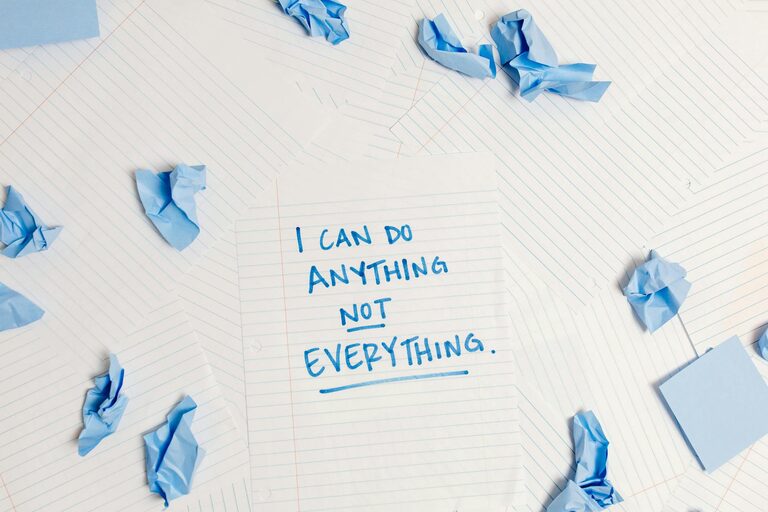
Journaling is more than just a way to record your day; it can be a powerful tool to enhance your mental clarity and sharpen your focus. By putting your thoughts on paper, you can organize your ideas, clear mental clutter, and set clear intentions. Whether you’re new to journaling or want to improve your technique, this guide will walk you through simple, effective steps to journal for clarity and focus.
Why Journal for Clarity and Focus?
Our minds often get overwhelmed by numerous tasks, emotions, and ideas happening at once. This mental overload can reduce productivity and create stress. Journaling helps by:
– Externalizing your thoughts, which frees up mental space
– Helping you identify priorities and eliminate distractions
– Allowing you to reflect and gain new perspectives on challenges
– Providing a space to track progress and celebrate successes
With these benefits, journaling becomes a practical practice for anyone wanting to be more intentional and productive.
Getting Started: Choosing Your Tools
You don’t need fancy equipment to journal effectively. The key is consistency and comfort.
– Notebook or journal: Choose one that feels inviting. It can be lined, dotted, or plain.
– Pen or pencil: Find a writing instrument you enjoy using.
– Digital apps: If you prefer typing, apps like Evernote, Day One, or simple note tools work well.
Whatever you pick, keep it accessible so you can journal whenever inspiration or a need arises.
Setting Up Your Journaling Routine
Creating a habit is crucial. Here’s how to set up a simple routine:
- **Pick a time:** Many people find mornings or evenings ideal for journaling.
- **Start small:** Aim for 5–10 minutes daily rather than overwhelming yourself.
- **Create a calm space:** Find a quiet, comfortable spot to write without distractions.
- **Set an intention:** Before starting, decide why you’re journaling — clarity, focus, problem-solving, or reflection.
Techniques to Journal for Clarity and Focus
1. Brain Dump
A brain dump involves writing down every thought, worry, task, or idea without filtering. This clears mental clutter and can help you see what’s occupying your mind.
– Write continuously for 5–10 minutes.
– Don’t worry about grammar or structure.
– Review your notes to identify what’s important and what can be set aside.
2. Prioritize and Plan
After your brain dump, focus on organizing and planning. Use your journal to:
– List the top 3 priorities for the day or week.
– Break tasks into manageable steps.
– Reflect on any obstacles and think of solutions.
This helps steer your focus toward what matters most.
3. Reflect with Prompts
Answering simple questions can improve self-awareness and clarity. Here are some prompts:
– What’s on my mind right now?
– What do I want to accomplish today?
– What challenges am I facing, and how can I address them?
– What distractions can I avoid?
– What am I grateful for today?
You can answer one or more prompts in each session or pick those most relevant to your needs.
4. Track Progress and Achievements
Recording small wins builds motivation and keeps you aligned with your goals.
– Note completed tasks or milestones.
– Reflect on what worked well.
– Adjust your plans based on progress.
5. Visualization and Goal Setting
Journaling is a great place to dream and plan your future.
– Write down your goals clearly.
– Visualize how achieving these goals will feel.
– Outline steps you need to take.
This clarity on goals fuels focus and determination.
Tips for Maintaining Your Journaling Practice
– Be kind to yourself: It’s okay if you miss a day. Just start again without guilt.
– Keep it private: Remember your journal is for you, so don’t worry about what others might think.
– Mix it up: Experiment with different journaling styles or prompts to keep it engaging.
– Use bullet points: They help organize thoughts clearly and quickly.
– Combine with mindfulness: Take a few deep breaths before writing to calm your mind.
Common Challenges and How to Overcome Them
I Don’t Know What to Write
Start with simple prompts or do a brain dump without judgment. Even a few words are progress.
I Forget to Journal
Set reminders on your phone or tie journaling to another habit, like having morning coffee.
I Feel Like It’s a Chore
Remind yourself of the benefits and keep sessions short. Try journaling creatively — draw, doodle, or write poetry.
Conclusion
Journaling for clarity and focus is a practical, accessible method to enhance your mental wellbeing and productivity. By dedicating just a few minutes daily and using techniques like brain dumps, prioritization, reflection, and goal setting, you can establish a practice that helps you navigate life with a clearer mind and stronger focus. Give it a try, and discover the difference it can make in your daily life.
Happy journaling!
